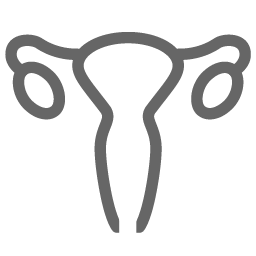Contraception considerations #2
Premenopausal women should be advised not to use a levonorgestrel-releasing intra-uterine device (LNG-IUD) and to use alternative non-hormonal contraception, as the safety of the LNG-IUD among women with breast cancer has not been determined.
The safety of levonorgestrel-releasing intra-uterine device (IUD) (Mirena®), which delivers high local but low systemic doses of progestogen is controversial: studies in breast cancer survivors are small and have not included recurrence or new cancers as an endpoint. In the absence of prospective data patients should be advised to use alternative non-hormonal contraception.
The safety of levonorgestrel-releasing intrauterine device (IUD) (Mirena), which delivers high local but low systemic doses of progestogen is controversial; a large epidemiological study has suggested that its use may increase the risk of developing breast cancer whereas a meta-analysis of three randomized clinical trials assessing its efficacy on preventing tamoxifen-induced endometriallesions in breast cancer patients did not show an increased incidence in breast cancer recurrence and cancer-induced death. In the absence of definitive data, the panel recommends patients should be advised to use alternative non-hormonal contraception.
How this guidance was developed
No evidence-based source recommendation was identified for this topic, which was considered an important aspect of care. This practice point was developed using an expert consensus process. The wording is informed by the narrative in the two most recent ESO-ESMO 2017 and ESO-ESMO 2020 guidelines based on a non-systematic review of the evidence; as well as the product information advice. Consideration was given to wording around potential use of a levonorgestrel-releasing intra-uterine device (LNG-IUD) in women on tamoxifen as it provides effective contraception and reduces tamoxifen-induced endometrial changes (incidence of benign polyps and endometrial hyperplasia), as long as the patient was made aware of the uncertainty surrounding the effect of the LNG-IUD on breast cancer recurrence. However, the lack of clear data on breast cancer recurrence or breast-cancer related deaths associated with its use, combined with the product information contraindication, was considered sufficient to currently recommend against its use. It is noted that some women may choose to use this method of contraception but this choice should be fully informed of the potential risks.
Contraception considerations #2
Premenopausal women should be advised not to use a levonorgestrel-releasing intra-uterine device (LNG-IUD) and to use alternative non-hormonal contraception, as the safety of the LNG-IUD among women with breast cancer has not been determined.
No evidence-based source recommendation was identified for this topic, which was considered an important aspect of care. This practice point was developed using an expert consensus process. The wording is informed by the narrative in the two most recent ESO-ESMO 2017 and ESO-ESMO 2020 guidelines based on a non-systematic review of the evidence; as well as the product information advice. Consideration was given to wording around potential use of a levonorgestrel-releasing intra-uterine device (LNG-IUD) in women on tamoxifen as it provides effective contraception and reduces tamoxifen-induced endometrial changes (incidence of benign polyps and endometrial hyperplasia), as long as the patient was made aware of the uncertainty surrounding the effect of the LNG-IUD on breast cancer recurrence. However, the lack of clear data on breast cancer recurrence or breast-cancer related deaths associated with its use, combined with the product information contraindication, was considered sufficient to currently recommend against its use. It is noted that some women may choose to use this method of contraception but this choice should be fully informed of the potential risks.


